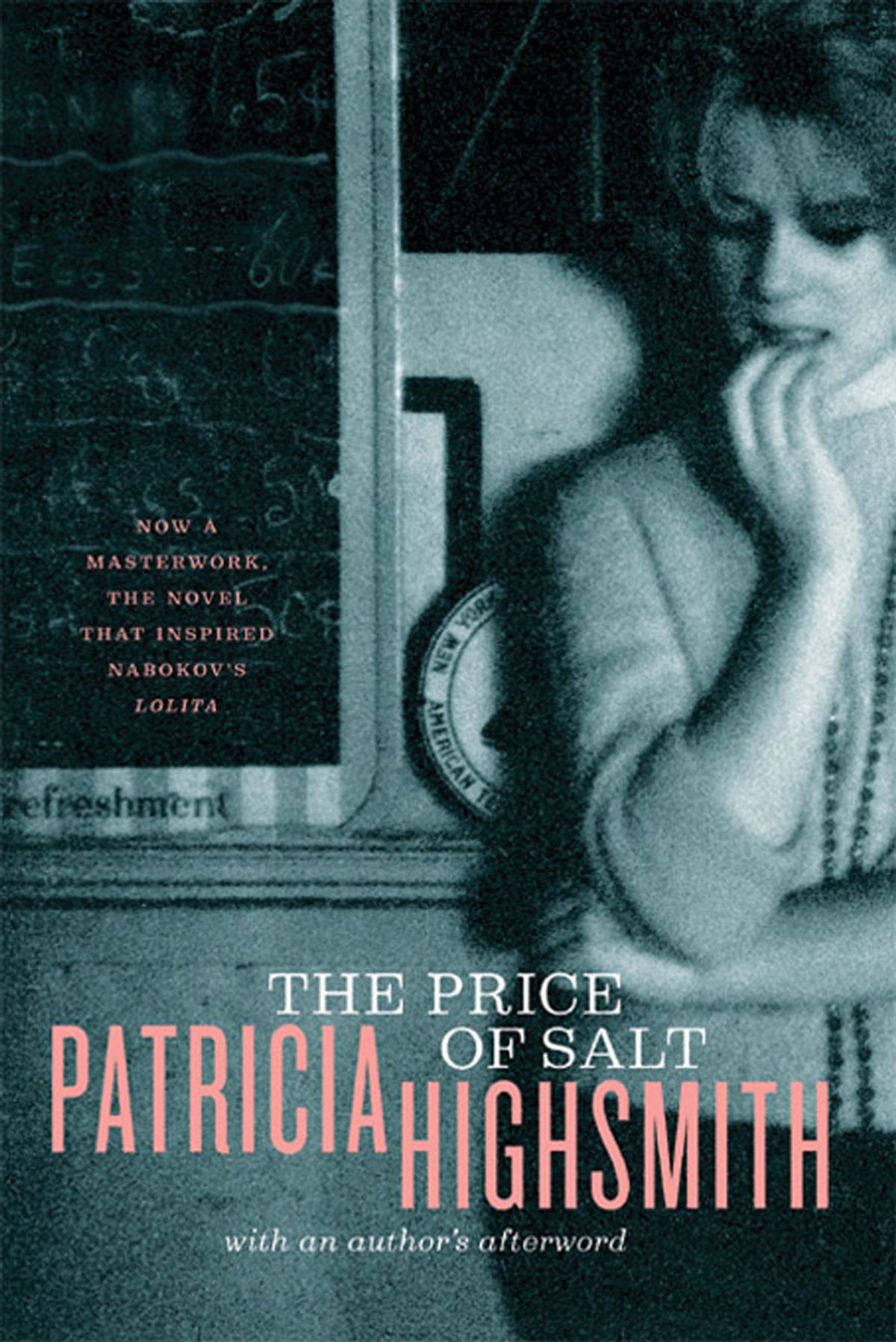
Dear Nabokovians,
I am writing a research paper about the intertextual parallels between “Lolita” and “The Price of Salt,” which is a 1952 lesbian romance novel by Patricia Highsmith (although to me it reads more like a novel about a creepy obsession).
I argue that when Nabokov was adding the finishing touches to “Lolita,” he took some inspiration from Patricia Highsmith’s novel. I am not claiming he stole entire plot points from the book - it is obvious that Nabokov conceived his first idea for "Lolita" in the late 1930s, and it was close to completion in 1952. But, chronologically, some "Interreaction of Inspiration and Combination” could have taken place since he finished the manuscript in 1953, and Highsmith's 1952 novel, when it was just published, was quite scandalous (advertised as "a story about love society forbids" - quite like "Lolita") and so the book might have attracted Nabokov's attention. The truth is, we'll never know for sure!
Nabokov, to my knowledge, has never mentioned Highsmith or Claire Morgan (the pseudonym under which "The Price of Salt" was originally published - it does seem funny to me though - Claire Morgan and Clare Quilty - another coincidence?). He was also a homophobe, and I doubt he would be open about drawing any inspiration from a lesbian romance.
I found many parallels, from plot points to the writing style itself, but I will only outline a few here:
The most obvious parallel (which is what might have attracted Nabokov in the first place) is a significant age difference between the characters in both texts. There is a 25-year age gap between Humbert and Dolores, and only twelve years between Carol and Therese, and yet, in “The Price of Salt,” Carol constantly emphasizes how young Therese is, often in a strange, creepy way. For instance, ever since Carol finds out that Therese is only nineteen, she keeps calling her a child. And this becomes a thread running through the narrative. There is a scene where Therese asks Carol for a glass of hot milk, and it mirrors the scene where Dolores asks Humbert for a glass of water, and so on.
Another similarity between Dolores and Therese is that both of them are described as orphans. Dolores’s mother dies in an accident, but even before that she promises to send her daughter to a strict boarding school. And Therese’s mother actually abandons her – sends her to a boarding school and never contacts her daughter again. Carol often calls Therese her “orphan,” and so does Humbert with Dolores.
- Finally, in both novels, the road trip across the States plays a major role. Both pairings find anonymity and freedom in the endless car ride, but they are also being followed — Clare Quilty is looking for Dolores, and Carol’s husband hires a detective to incriminate Carol for her relationship with another woman.
And here's what Terry Castle, an American literary scholar, says about "The Price of Salt" as inspiration for "Lolita":
I’ve long had a hunch that Nabokov’s depiction of sex renegade Humbert Humbert and his twelve-year-old nymphet’s madcap drive through tacky midcentury America in Lolita may have been inspired by Highsmith’s cross-country-lovers-pursued-by-gumshoe gambit in The Price of Salt
There is also a 2004 W. W. Norton edition of "The Price of Salt" that proudly claims it inspired "Lolita"... I included it at the top to attract your attention. Now, even I think it's a bit of a stretch! But, given how many people see the connection between the two texts, why isn't there a coherent scholarly conversation about it? I found a few scholarly articles that mention it briefly (for instance, "’I Think a Look at the West Would Do You Good’ Queer Visibility and Mythological Refuge in The Price of Salt" by Lindsay Stephens), but there is no in-depth research on the topic. Leaving the inspiration part aside, no one has even attempted to discuss the intertextual parallels in detail.
Since there aren’t many peer-reviewed sources on this topic, (Again, I think it’s strange that more scholarly work hasn’t been done comparing the two texts - does anyone have any idea why?), I decided to consult this forum first. I am ready for you to tear me to pieces for this take. I am also very biased since I love Highsmith's novel, and I read it before "Lolita."
I'm eager to hear your thoughts on this matter!
- Veronika
